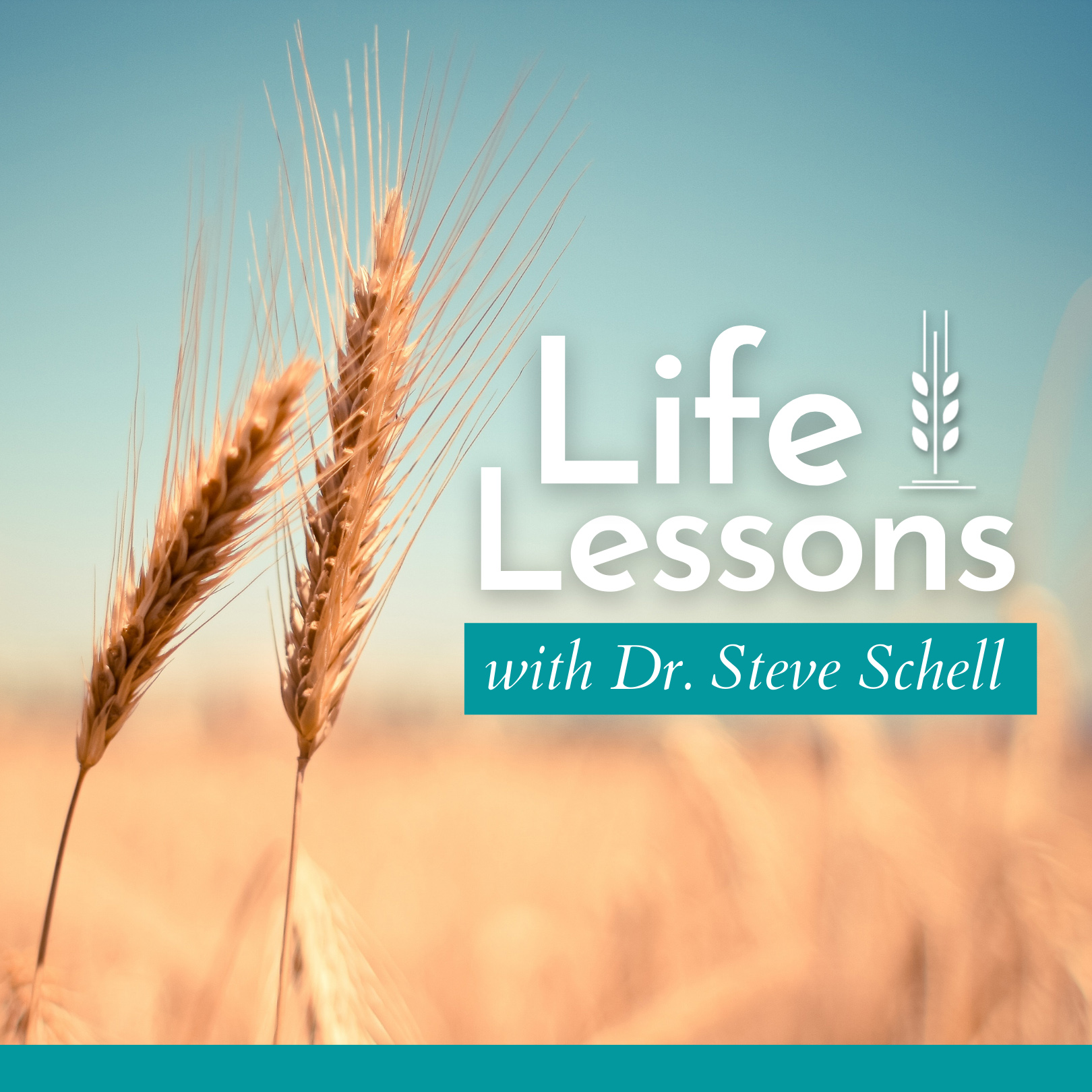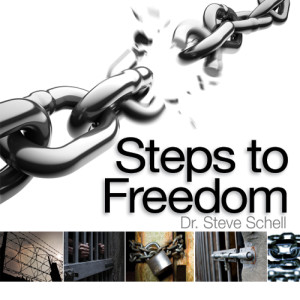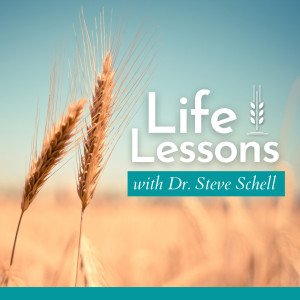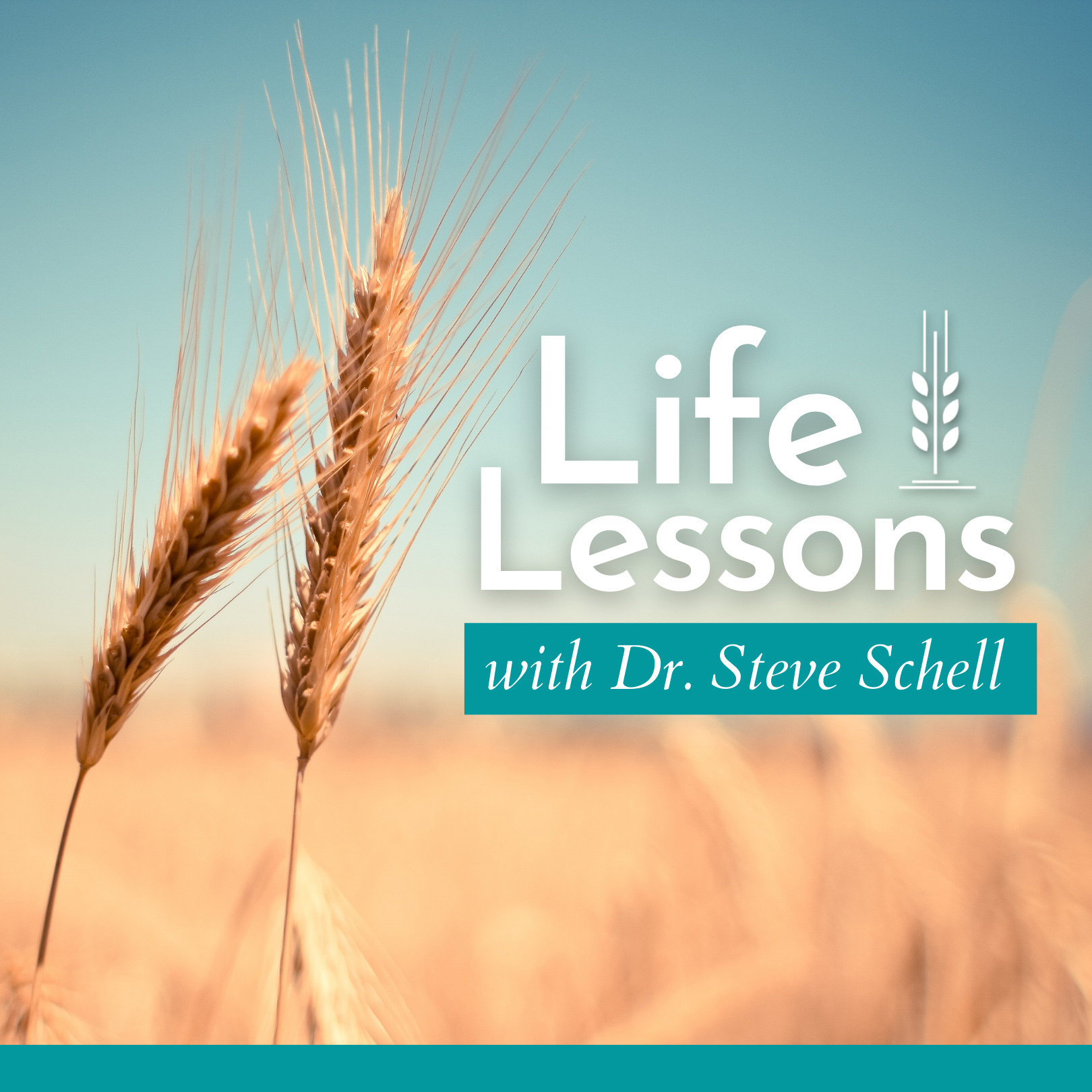
149.2K
Downloads
503
Episodes
Pastor Steve Schell comprehensively teaches through entire books of the Bible pulling out the deep, eternal truths in each section of Scripture without skipping over challenging passages. These sermons will help foster true discipleship for the committed Christian, both young and old.
Pastor Steve Schell comprehensively teaches through entire books of the Bible pulling out the deep, eternal truths in each section of Scripture without skipping over challenging passages. These sermons will help foster true discipleship for the committed Christian, both young and old.
Episodes

Monday Jul 01, 2024
Step 1 - A Changed Heart
Monday Jul 01, 2024
Monday Jul 01, 2024
As Christians we aren’t just forgiven of past sins. The Lord has set us free from the control of our flesh and the devil so we can live fruitful lives. So, how’s your freedom? Are there areas where you still feel some bondage to old ways, habits and temptations? If so, you are not alone.
The principles in this series Steps to Freedom are the key to getting free of all sorts of addictions and temptations using God’s resources and power instead of our own so we can obtain the freedom that Christ has won for us through the cross.

Thursday Jun 27, 2024
94 - The Next Chapter
Thursday Jun 27, 2024
Thursday Jun 27, 2024
Calling is very different from employment. Calling has to do with the most primal issues in any person’s life. It’s the answer to the questions: Who am I and why am I here? Employment, however, is a practical matter. It’s about doing something to generate the resources I need to live. Since we all need food, shelter and clothing, our employment is very important to us, but unless someone is financially unable to retire, most people set a date to retire from their job. Their productive years have passed, and their time for leisure and rest have come. Many look forward to those years as a reward for all their hard work. But calling, because it’s an assignment from God and because it is ultimately about helping people find eternal life, doesn’t have a date at which it stops. We simply do what we’re called to do until we can’t anymore. Of course, there are different “seasons” in everyone’s life, so our calling will be expressed in a variety of ways appropriate to each new season. But the point we need to see is that calling isn’t like employment. It’s not something from which we can retire; it’s who we’ve been created to be; it’s the way we’ve been designed to serve God. And I don’t think it ends even when we die, because when Jesus returns to this planet each of us will be assigned an area of ministry for at least another thousand years (Rev 20:1-6). So, the ministry skills and godly character that are being developed in this age will almost certainly be used in the next.
As we try to reconstruct what happened to Paul after the Book of Acts ends, whether or not we believe he was released, his example challenges every one of us. He didn’t stop serving Jesus until they killed him. If they arrested him, he preached to his guards; if they confined him to an apartment, he preached to everyone who came to visit; and by the way, it was during those years of confinement in Rome that he wrote the letters we call the “prison epistles”: Philemon, Colossians, Ephesians and Philippians.

Monday Jun 24, 2024
93 - Tough Assignments
Monday Jun 24, 2024
Monday Jun 24, 2024
Within three days of arriving in Rome, Paul sent someone to invite the elders of the Jewish community to meet with him. As he had done in city after city he would begin by preaching to his kinsmen. He would do his very best to show them the suffering Messiah in the Scriptures and explain how Jesus of Nazareth fulfilled those prophecies. And again, as had happened in city after city, as the day wore on some became convinced and some grew hostile. Many of the elders in that room would have memorized the entire Torah (first five books of the Bible), and in some cases, the entire Old Testament, so quoted passages would have been flying back and forth, meanings debated, and personal observations made about people they knew who had believed in Jesus. Then, when it became apparent that many had decided to reject his message and were preparing to leave, Paul issued a warning to them by quoting from words God spoke to Isaiah when He called him to become a prophet (Isa 6:8-13). God didn’t tell Isaiah he would have great fruitfulness. In fact, He assured him of just the opposite. He was calling him to a tough assignment. The people wouldn’t repent and the nation wouldn’t escape disaster. His ministry would actually leave his listeners in worse condition than before. And Paul was telling the elders that preaching to them was just like Isaiah preaching to his generation. He too, knew ahead of time that only a few would listen. But the point we need to see today is that Paul reached out to them anyway, knowing that no matter how patient or careful he might be, the majority would likely reject his message. He still invited them to meet with him and shared his faith. Why? With that kind of depressing outlook we might wonder why he would bother. Why not bypass the Jews and go straight to the Gentiles? They would gladly receive him. Why should anyone have to preach to people who don’t want to hear the truth?

Thursday Jun 20, 2024
92 - Seeing Our Sin
Thursday Jun 20, 2024
Thursday Jun 20, 2024
The issue that lay at the heart of this debate between Paul and these synagogue leaders was the question of how God deals with sin. Paul was trying to convince them that God requires a payment to be made for our sins, one that goes far deeper than anything we humans could even provide. But most of those elders appear to have believed that God can simply ignore our sins if He chooses to. And that difference of opinion likely determined whether or not any elder believed what Paul was telling them: that God’s Messiah had to die. They were asking themselves: Is sin really a problem, or is it something God can dismiss with a wave of His hand? Probably everyone in that room believed that God would someday send the Messiah to save them, but they differed greatly on what they thought He would do when He arrived. Most had been raised to believe the Messiah would be an extraordinarily gifted human being who would rise up to lead Israel to world dominance. To support their position they could point to an abundance of promises in the Bible which picture the Messiah arriving in glory to destroy enemy armies, re-gather the people of Israel into their land, prosper them, and bring peace to the whole world. Paul, on the other hand, was showing them in passage after passage that sin always produces death, and unless that sin is transferred to someone else there can be no forgiveness. Then he would have shown them that God had appointed the Messiah to die for our sins, and also had promised that He would raise Him from the dead. Paul was trying to convince them that God cannot simply ignore human sin. His justice demands that our sins be paid for, not ignored. And if it isn’t, we stand condemned before God, and instead of blessing us, when the Messiah arrives in glory, He will have to condemn us.
To make his point, Paul undoubtedly reminded those elders of all the images of blood in the Old Testament and explained that those symbols were intended to teach us about the cross of Jesus. He was doing with those elders in Rome the same thing Jesus did with two disciples on the road to Emmaus. Listen: “And He said to them, ‘O foolish men and slow of heart to believe in all that the prophets have spoken! Was it not necessary for the Christ (Messiah) to suffer those things and to enter into His glory?’ Then beginning with Moses and with all the prophets, He explained to them the things concerning Himself in all the Scriptures” (Lk 24:25-27).
Later on, Jesus said this: “Thus it is written, that the Christ would suffer and rise again from the dead the third day, and that repentance for the forgiveness of sins would be proclaimed in His name to all the nations, beginning from Jerusalem” (Lk 24:46-47). Even after He rose from the dead Jesus had to talk to His disciples about this same issue. Do the Scriptures really say the Messiah must die, and if so, why? And if they do, why is it so hard for people to accept that fact? Let’s join this discussion and try to answer those questions.

Monday Jun 17, 2024
91 - When Believers Suffer
Monday Jun 17, 2024
Monday Jun 17, 2024
So much of our testimony about what we believe is given in moments when we don’t realize we’re doing it, to people we don’t even know are listening. When we think about proclaiming Christ to others we usually picture someone talking about Him, but actually some of the most effective preaching is done wordlessly. It’s what people see when they watch us go through life. And you might assume that in order for someone to want our Savior, we would have to lead lives that are prosperous and trouble-free because if things went badly for us surely no one would be attracted to our faith. But amazingly, that’s not the case. In fact, you could almost say it’s the opposite, that it’s the way we suffer hardship that makes the most powerful impression of all.
The reason is probably quite simple. When things are going well it’s easy to believe in God; it’s easy to be happy; it’s easy …at least it’s easier… to be nice to others. After all, you’re prosperous, you’re successful, you’re a “winner,” you can afford to be nice. But when we suffer, when we hurt, when we’re afraid, when we’re criticized the hidden things of the heart are exposed. We don’t have the energy anymore to hide our weakness. The depth of our faith gets tested. In this way suffering exposes the deepest, truest attitudes in all humans. And we all know that. So when someone suffers patiently, faces death fearlessly, treats their tormenters kindly, everyone notices. It’s unusual, it’s remarkable, it’s the most powerful witness of all.

Thursday Jun 13, 2024
90 - Accidental Assignments
Thursday Jun 13, 2024
Thursday Jun 13, 2024
Paul wasn’t supposed to be on Malta. God had clearly expressed His will. He had prophetically warned those in charge of the ship to stay in the safety of the harbor in Crete (Ac 27:9-11). And then, nearly two weeks later while they were helplessly drifting about in a storm, Paul scolded them for not listening to him (Ac 27:21). No, they weren’t supposed to be on Malta, they were supposed to be on Crete. Basically, they were on Malta because they had disobeyed God. They weren’t led to Malta; they were shipwrecked on its rocky northeastern coast after being carried 476 miles by a typhoon. Yet on the day they boarded a ship for Rome, how many of those who had been saved or healed or delivered from demonic oppression didn’t thank God for that shipwreck? As they said goodbye to Publius and his father, and how many others, who can imagine that Paul, Luke or Aristarchus regretted for one moment the months they spent on that island? What began as an accident, the result of deliberate disobedience, ended up being one of the more important stops among Paul’s missionary journeys. A mistake somehow became an assignment; an accident became a blessing. What might have been wasted was redeemed… to such an extent that it would be hard to say it wasn’t part of God’s original plan all along. Yet we know it wasn’t, so it appears we are watching one more example of God’s ability to cause “…all things to work together for good to those who love God, to those who are called according to His purpose” (Ro 8:28).
This is a truth we need to let sink deep into our heart because so many of us have gotten ourselves into difficult situations because of foolish choices, or even deliberate disobedience to God. And we’ve assumed that because we started out wrong, the blessing of God would be withheld until we got back into the center of His will. We may have become despairing, believing that we ruined our lives, that once off-course we would never get back. That’s why we’re going to Malta, one more time. We need to remember that God can turn accidents into assignments.

Monday Jun 10, 2024
89 -Thankful People
Monday Jun 10, 2024
Monday Jun 10, 2024
When God uses you to minister to someone it’s natural for them to become grateful to you. It’s hard for people to distinguish in their minds what part of that wonderful blessing you did, and what part was God. They realize their help came from God, but it was God through you. And they’re so grateful that you were faithful to do what you did, or say what you said, or pray what you prayed, that they want to find a way to bless you in return. They’re not trying to pay you back; they just need to express what’s welling up in their hearts.
Being thankful is a good thing. Jesus wondered at the nine who were healed but didn’t come back to thank Him (Lk 17:15-19). But such thankfulness can also present a danger. The person receiving thanks can be tested by it. Even if the person giving thanks isn’t able to properly distinguish between the human and the divine, between what you did and what God did, the person receiving the thanks must. To accept more than is your due is to take for yourself a glory that belongs only to God. It places you in a position between God and His thankful people, and if that is not corrected it will bring His judgment. He will stop ministering through you. Power and humility go hand in hand. The more we are careful to turn all the glory and thanks back to God, the more we understand that it’s His power and not ours, the more He is able to use us. As we have read through the Book of Acts, we’ve watched Paul perform amazing miracles, and we can’t help but notice that as the years went by that power didn’t leave him. Here on Malta God’s Spirit was still working mightily through him, and one of the reasons is because he always pointed thankful people back to God. We must do the same.

Thursday Jun 06, 2024
88 - Spiritual Leadership
Thursday Jun 06, 2024
Thursday Jun 06, 2024
People follow certain kinds of people. Some they follow because of fear. The leader will punish them if they don’t do what they’re told, and this is not necessarily a wrong way to lead because certain people can only be led with a firm hand. They will only obey a particular law because they might get caught and punished if they don’t. But there is also another kind of leader who people follow willingly. This person is given authority out of respect, which means in some way they have earned it. People have watched this person over a period of time and have seen how they handle situations. They may possess a skill others want to learn. They may have a history of making good decisions so that people seek their wisdom. They may exhibit a high level of character so that people want to become like them. This kind of leader doesn’t need to threaten those who follow them. They may not even be aware they’re leading. But the fact remains: People are following, and neither titles nor rank can bestow this kind of authority on anyone. It has nothing to do with that person’s position in life; it’s given to them because of who they are. This type of leader might be the youngest or oldest, the best-looking or plain, male or female, wealthy or poor, employer or employee, captor or prisoner. Those who know this person see something inside them that’s more important than what’s outside.
Spiritual leadership is based on this type of respect and trust, but it includes a quality we haven’t mentioned yet: a deep relationship with God. There is something about that person’s life that convinces others that God is with them. Put simply: God seems to favor that person. When they pray, things happen. When they say God told them something, time proves they were right. And they actually live the kind of self-disciplined and pure life God wants people to live. That doesn’t mean they are perfect, but it does mean they have integrity. And one more thing: They genuinely love those they lead. They put their needs ahead of their own.

Monday Jun 03, 2024
87 - Receiving a Miracle
Monday Jun 03, 2024
Monday Jun 03, 2024
So many books have been written, and sermons preached, about faith that the subject can become overwhelming. Those who long to walk in greater faith can be left with the feeling that real faith, the kind that produces real miracles, is just too hard for normal people like us. We don’t doubt that miracles can happen, or that they do happen for some people, we just assume we aren’t that kind of people. Apparently, real miracles require more faith than we’re able to produce.
But into all this confusion and frustration about faith, steps Luke. His description of what took place during this storm is so vivid, so detailed, we can almost watch the events unfold in our mind’s eye. And the most wonderful part is that he allows us to observe Paul walking through this crisis by faith. And what we observe seems pretty simple and straightforward. It leaves us wondering if receiving a miracle can really be that easy.

Thursday May 30, 2024
86 - Belonging To God
Thursday May 30, 2024
Thursday May 30, 2024
There’s a huge difference between humility and insecurity. They may look the same on the surface, but they serve two different masters. One is driven by the fear that it is unworthy of being loved and tries desperately to earn approval. The other is able to wrap a towel around its waist and kneel down to wash feet because it is so confident that it is loved and approved. And I don’t think we have it within ourselves to change from one to the other, as if someone who’s insecure could become confident by convincing themselves that they are important. Such confidence is a gift that must be given to us by someone else. It’s not a prize we can achieve on our own. We become confident when someone we trust, someone who knows us better than we know ourselves, someone with a greater perspective than we have, sees our true place in life and tells us who we really are.
To some degree parents play this role in a person’s life, which means a child that was raised in a family in turmoil or by a dysfunctional parent can grow up with an empty place inside. The message that they are loved and valued was never imparted, and that person might be left to go through life trying to find someone who will give them that gift; or they try to fill that need for themselves; or they just pretend they don’t care.
But even if someone had good parents, the longer we live the more we discover our own weaknesses and the negative impulses in our flesh that lurk just beneath the surface. So, even if we didn’t start out insecure, a history of mistakes can erode any sense of security we once had. Then how can a person find peace… inside? Where do we turn to find that someone who will give us the gift of love and acceptance? Let’s let a man who found the answer tell us.
